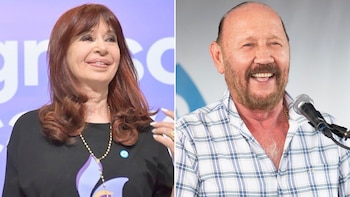
In Lausanne, Switzerland, the various committees of the International Olympic Committee (IOC) meet for three weeks and this meeting is not just another one. It’s historic.
For the first time, the committees will be composed of the same number of men (273) and women (273) to complete the 546 posts of the new structure. All the appointments were made last September by Thomas Bach, president of the IOC.
In 2013, female representation on committees was only 20%; in addition to achieving this equity, the number of women chairing the IOC committees has also increased in recent years: 13 out of 31.
In addition to this parity between men and women, another historic fact that occurs at this annual meeting in Lausanne is that for the first time the IOC committees have appointed refugee athletes.
“I only cried twice in my life: when my mother abandoned me and when they told me that I would be part of the first Olympic Refugee Team of the International Olympic Committee (IOC),” Yiech Pur Biel once acknowledged, who fled South Sudan in 2005 to escape the civil war and live in the Kakuma refugee camp (Kenya). The athlete participated in the Rio 2016 Olympic Games in athletics and is now a member of the IOC and the Board of the Olympic Refuge Foundation.

For her part, Masomah Ali Zada, an Afghan, escaped more than once from the Taliban. The cyclist competed in the last Tokyo 2020 Olympic Games also as part of the Olympic Refugee Team and was named a member of the IOC Athletes’ Commission.

“The IOC commissions play a vital role in the organization’s work, focusing on specific subject areas and making recommendations to the IOC president, the executive board and the session. The composition of each commission includes members of the IOC and a variety of external experts,” the organization explains.
At this historic meeting in Lausanne, the committees are working on the Olympic Agenda 2020+5, which “consists of 15 recommendations, is based on the results of the Olympic Agenda 2020 and acts as a roadmap for the IOC and the Olympic Movement for the next five years”.
The International Olympic Committee’s next step is gender equity in the Olympic Games to be held in Paris. In Tokyo, Japan, 48% of the athletes were already women and the goal is to ensure that in France the representation of men and women is exactly the same.
Últimas Noticias
Sinner-Alcaraz, the duel that came to succeed the three phenomenons
Beyond the final result, Roland Garros left the feeling that the Italian and the Spaniard will shape the great duel that came to help us through the duel for the end of the Federer-Nadal-Djokovic era.
Table tennis: Brazil’s Bruna Costa Alexandre will be Olympic and Paralympic in Paris 2024
She is the third in her sport and the seventh athlete to achieve it in the same edition; in Santiago 2023 she was the first athlete with disabilities to compete at the Pan American level and won a medal.

Rugby 7s: the best player of 2023 would only play the medal match in Paris
Argentinian Rodrigo Isgró received a five-game suspension for an indiscipline in the circuit’s decisive clash that would exclude him until the final or the bronze match; the Federation will seek to make the appeal successful.

Rhonex Kipruto, owner of the world record for the 10000 meters on the road, was suspended for six years
The Kenyan received the maximum sanction for irregularities in his biological passport and the Court considered that he was part of a system of “deliberate and sophisticated doping” to improve his performance. He will lose his record and the bronze medal at the Doha World Cup.

Katie Ledecky spoke about doping Chinese swimmers: “It’s difficult to go to Paris knowing that we’re going to compete with some of these athletes”
The American, a seven-time Olympic champion, referred to the case of the 23 positive controls before the Tokyo Games that were announced a few weeks ago and shook the swimming world. “I think our faith in some of the systems is at an all-time low,” he said.




